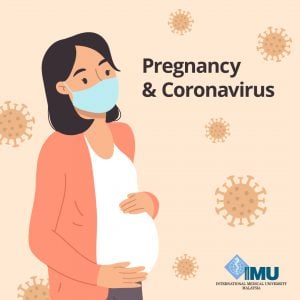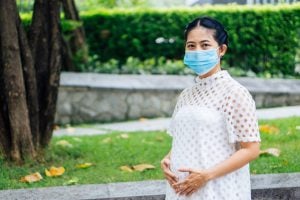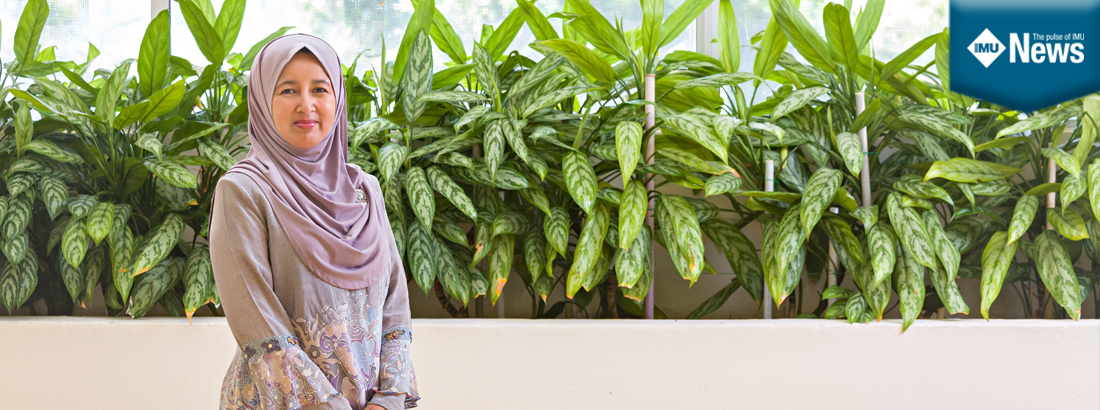With the rollout of COVID-19 vaccines in Malaysia currently underway, many pregnant women have this one important question in their mind – should they or should they not take it? Prof Nazimah Binti Idris, a Professor of Obstetrics and Gynaecology (in the photo above) at International Medical University (IMU) School of Medicine and Medical Director for IMU Healthcare (IMUH) as well as Consultant Obstetrician and Gynaecologist, clears the air about COVID-19 vaccines and its effect on your pregnancy.

Pregnancy is deemed one of the most memorable and precious moments for a woman. However, with the current pandemic, many pregnant women find themselves in a vulnerable state. According to the Centers of Disease Control and Prevention (CDC), pregnant women who have COVID-19 appear more likely to develop respiratory complications requiring intensive care than women who aren’t pregnant. They are also more likely to be placed on a ventilator. A study published in the medical journal JAMA Paediatrics also found that women who contracted COVID-19 had higher risks for death, preterm birth, and preeclampsia.
There are many similar research papers, which has prompted public health officials around the world to recommend COVID-19 vaccines to pregnant women to protect themselves and their babies. However, despite all these vulnerabilities, some pregnant women – as well as those who are planning to get pregnant – are of two minds when it comes to being vaccinated, unsure if there will be any effect on their fertility, pregnancies, and ultimately their babies.
“Especially if you are in the high-risk group, I would strongly advise that you get vaccinated,” says Prof Nazimah. This includes those women over who are 35, either obese, diabetic or hypertensive. If your day-to-day activities exposes you to many people, like frontliners do, you are considered high risk too. If you are not in any of these categories, then there is the option of delaying your vaccination after you have given birth provided that you’ve assessed your risks with your doctor.

While clinical trials of the Covid-19 vaccines on pregnant women is still ongoing, the current data made available from the mRNA vaccines on COVID-19 vaccination in pregnancy did not point to any safety concerns for the vaccinated women or their babies. The mRNA COVID-19 vaccine available in Malaysia is Pfizer.
Prof Nazimah Binti Idris, Professor of Obstetrics and Gynaecology at International Medical University (IMU) and Medical Director for IMU Healthcare (IMUH), shares her opinion on this matter: “If you get the infection when you’re pregnant, chances are you will get the most severe form of the disease. Reports have shown that if you get infected with COVID-19 during you are in your third trimester, the death rate is also higher. Therefore, I will strongly advise for you to take the vaccination when you’re pregnant.”
Will the vaccine effect my pregnancy and more importantly, my unborn child?
Regarding the side effects of the vaccination in pregnant women. Prof Nazimah advises that it is no different from a non-pregnant person, “You will have side effects that are the same as women who are not pregnant – soreness at injection area, you may feel feverish, experience headache and body ache.”
She also shares some positive news about vaccines and babies: “The vaccine itself does not affect your baby. It does not get transmitted from the mother to the baby during your pregnancy. But if you’re vaccinated, it will affect the baby in a good way. All vaccines work by triggering our own body to produce antibodies. These antibodies can be transmitted to the baby and the baby will have some form of protection.” It’s interesting to note that the antibodies can also be excreted through breastmilk so your baby gets both nutrition and protection.
Nazimah advises those who plan to be vaccinated to first consult with their obstetrician and get an assessment done. It is advised for pregnant women to be vaccinated between weeks 14 to 28 of your pregnancy so they will be best protected against the more severe form of disease in the third trimester. If you are already in the third trimester, the Ministry of Health Malaysia advised that you could still get yourselves vaccinated up to 33 weeks of pregnancy.
Would these same rules apply for those who are trying to conceive?
Absolutely, according to Prof Nazimah, with some planning involved. “I would suggest for you to complete your vaccination dose first before you try to get pregnant. This way you are already protected. Or even if you’ve taken the first shot and found out that you were pregnant after, you don’t have to worry. Just continue with the pregnancy as usual because we know that vaccination in the first trimester does not increase the miscarriage rate,” says Prof Nazimah. As for whether vaccination affects one’s fertility, a simple biology fact clears the air: “Your menstrual cycle, your ovulation, your ability to get pregnant depends on your hormonal cycle from your hypothalamus to pituitary to your ovary. The COVID-19 vaccination does not affect this or your chances of getting pregnant in any way,” says Prof Nazimah.
What’s the Right Vaccine for You?
Currently, there are three vaccinations available in Malaysia – Pfizer, Sinovac, and AstraZeneca. The advisory now is that Pfizer can be given to both pregnant women and lactating mothers, and AstraZeneca for the latter. To ensure that you’re given the most appropriate COVID-19 vaccine, you can now provide more information on your status in the MySejahtera app and your appointment will be based on the vaccine that is suitable for you at a particular vaccination centre (PPV).
“For pregnant women, we recommend that you be vaccinated with the Pfizer vaccine as it has been studied the most for pregnancy. So there is safety data to make that recommendation. As for the other two, the research is still ongoing,” says Prof Nazimah.
Should one be worried if they took the AstraZeneca vaccine and found out they were pregnant later? Not at all, says Prof Nazimah. “The vaccine itself does not affect the pregnancy. We have long experience with vaccination and vaccination in pregnancy, and we have knowledge of how it affects you and the pregnancy. So even if you have received another type of vaccine, I wouldn’t worry too much,” she says.
Ultimately, vaccination is a personal choice. But when dealing with COVID-19 and the fact that pregnant women are known to have significantly higher risks for severe coronavirus-related complication, the issue of protection is critical.










Maria Boniello
I admire your work , thankyou for all the informative posts .